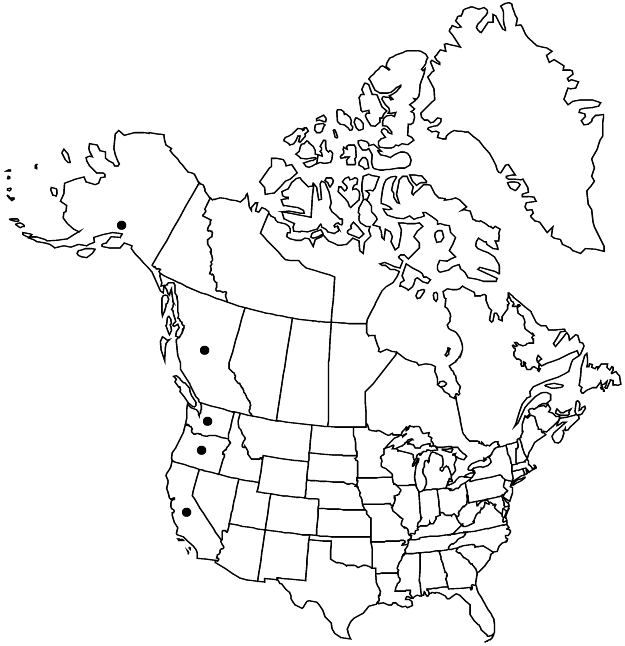Rumex transitorius
Repert. Spec. Nov. Regni Veg. 40: 296. 1936.
Plants perennial, glabrous, with vertical rootstock. Stems ascending, ascending-decumbent, or erect, simple or producing axillary shoots below 1st-order inflorescence or at proximal nodes, 25–70 cm. Leaf blades linear-lanceolate or lanceolate, 6–15(–17) × 2–4 cm, usually ca. 3.5–6 times as long as wide, widest near middle or nearly so, thin or rarely subcoriaceous, base cuneate, margins entire, undulate or slightly crisped, apex acute. Inflorescences terminal and axillary, terminal usually occupying distal 1/5–1/3 of stem, dense or occasionally interrupted near base, usually broadly paniculate (branches simple or with few 2d-order branches). Pedicels articulated in proximal 1/3, filiform, 3–7 mm, equaling or 1.5–2 times as long as inner tepals, articulation indistinctly swollen. Flowers 10–20(–25) in whorls; inner tepals, broadly ovate to ovate-lanceolate, occasionally almost triangular, (2.5–)3–3.5 × 2–2.5 mm, base truncate or rounded, margins entire or indistinctly erose, apex obtuse or subacute; tubercles 3 (occasionally 1 in var. monotylos Rechinger f., then very large, subequal or only slightly narrower than inner tepal), distinctly unequal (1 larger tubercle subequal or slightly narrower than inner tepal), usually smooth. Achenes dark reddish brown, 1.8–2.4 × 1–1.5 mm. 2n = 20.
Phenology: Flowering late spring–early summer.
Habitat: Coastal dunes and marshes, shores of rivers and streams, wet meadows
Elevation: 0-2000 m
Distribution

B.C., Alaska, Calif., Oreg., Wash.
Discussion
J. T. Kartesz (1987, vol. 1) reported Rumex transitorius from Washoe County, Nevada; the morphological characters mentioned in his description suggest another taxon of the R. salicifolius aggregate. Records from Idaho also need confirmation.
Selected References
None.